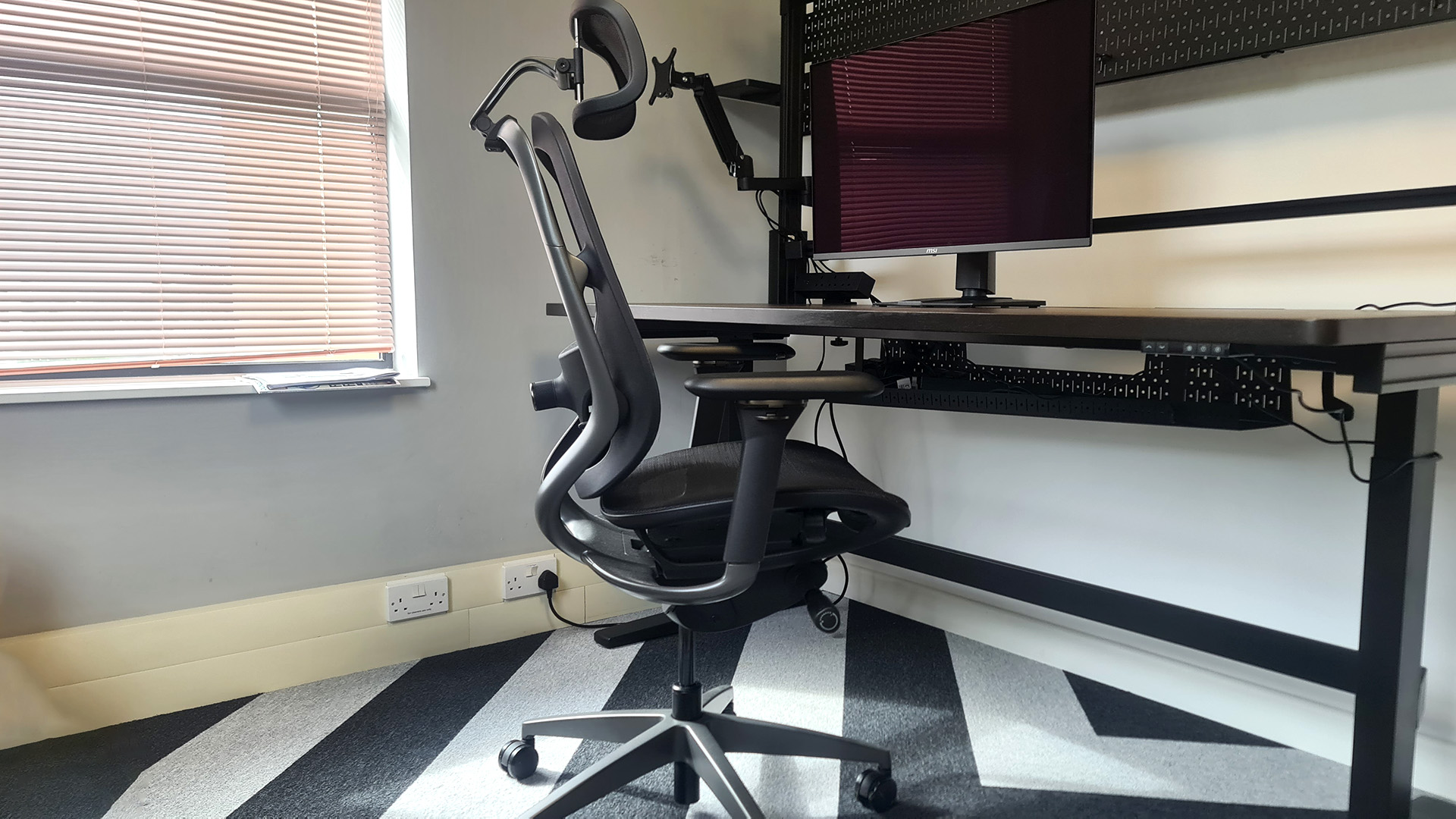Our Verdict
In every way an office chair, first and foremost, the Razer Fujin Pro gives the tried and tested premium office chairs a run for their money. However, a slimmer warranty than some keeps it from beating our favourite office chairs today.
For
- Straightforward set-up
- Easy ergonomics
- Comfortable
- Promotes good posture
Against
- Much more expensive than a gaming chair
- Not very relaxing
- Five-year warranty
PC Gamer's got your back
Not every gaming chair is a gilded throne with outspoken styling. Take the Razer Fujin Pro, it's a mesh gaming chair that wouldn't be entirely out of place within a beige-washed corpo office. And before you think I'm bashing the Fujin Pro unfairly on its looks—I like it. I really like it.
It'd be a crying shame for this chair to be anything less than great, though. It's priced at $1,049.
Still with me? Let's talk about the great bits about the Fujin Pro before we get to the pricing and competition.
For starters, it's a breeze to set up. The chair comes disassembled, however, it has few large parts to manoeuvre. The seat is the most unwieldy piece and even then it's easily slotted into the base by yourself. The backrest and arms slot into place and attach with a couple of hex (allen) bolts, but you'll need your own allen key. Lastly, the headrest clamps onto the top of the chair, though I quite like the chair without.
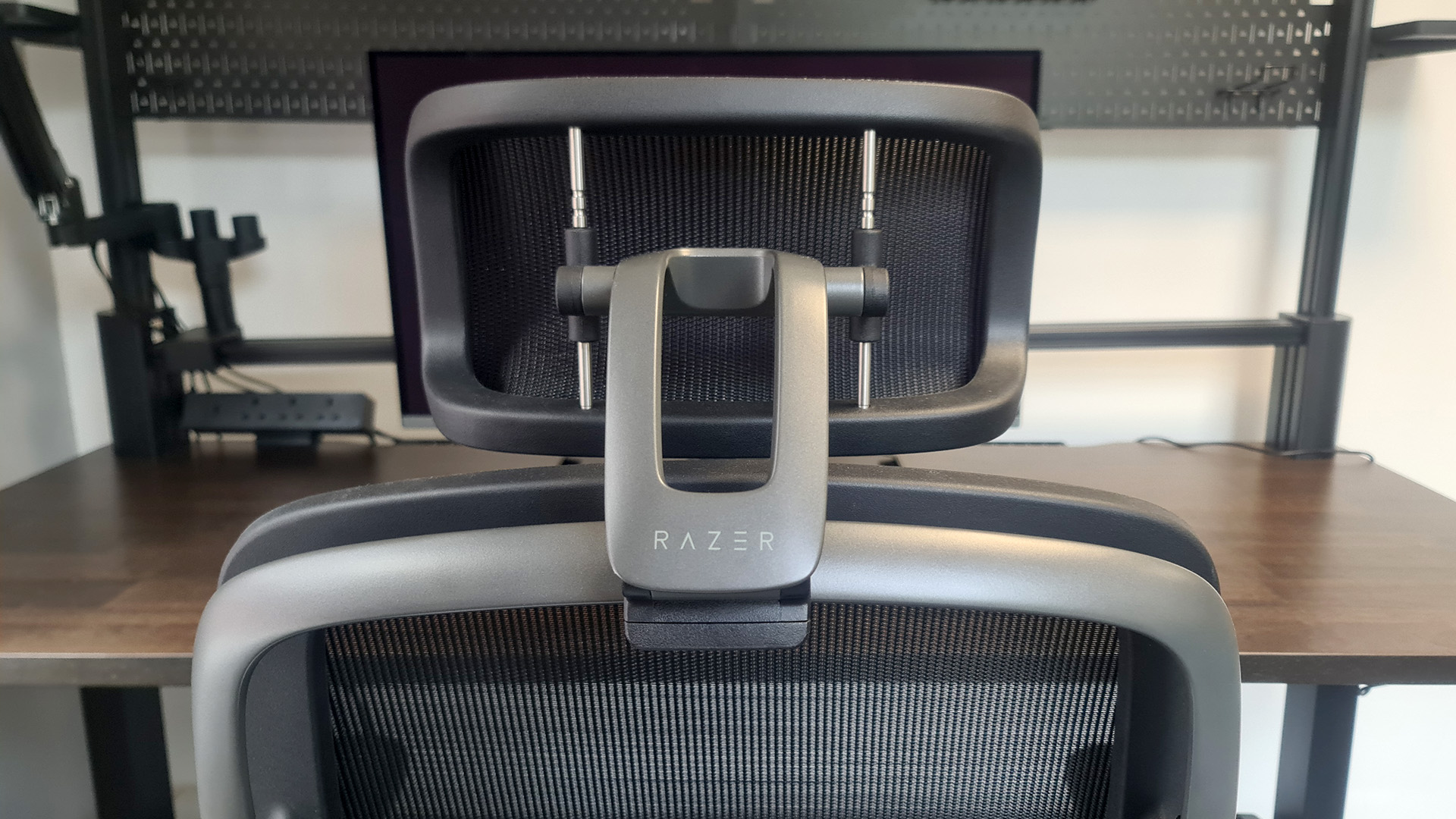
Support: Height up to 79-inches/200 cm. Weight up to 300 lbs/136 kg
Fabric: Firm, breathable mesh
Lumbar support: built-in, adjustable
Warranty: 5-year for frame, mechanisms, armrests. 3-year for mesh backing and seat pan
Armrests: 4D adjustment
Price: $1,049
Resting my rump on the chair and it's very firm. It's a different approach to the plush seats found on many leatherette gaming chairs I've tested over the past few years, though it's not uncomfortable. There's not much give to the chair if you lean back into it, and in the default position, you'll sit bolt upright. That's not such a bad thing for office life, though if you're trying to relax into your evening both figuratively and literally, you'll want to take advantage of the multiple adjustment options the chair offers.
Three paddles offer various ways to customise the comfort of the chair. I have to commend Razer on these—usually a small, inconsequential detail, these paddles are actually much nicer to use and more convenient than the wobbly levers you'll find attached to many gaming chairs.
There's a lever to adjust the height of the chair and another to adjust the seat's forward/backward position. Lastly, there's one to recline the chair. This works in tandem with a bar to increase/decrease the tension in the chair's recline. Flip the lever to lean back to your heart's content. You can only lock the chair to a certain recline at set points but it's no issue to find a comfortable position.
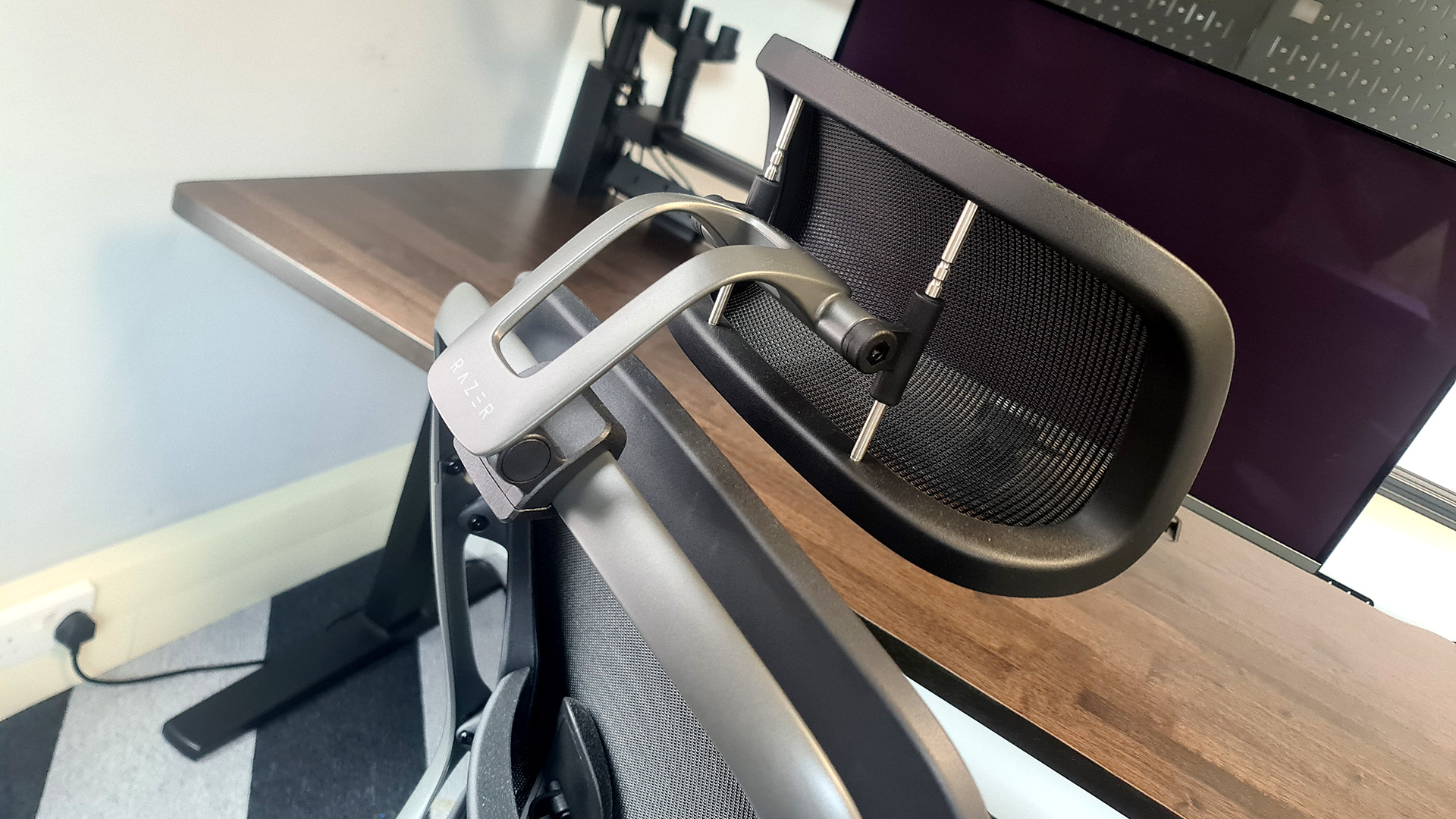
The ergonomic back support appears more like a medieval torture device, though it's the opposite of such a thing in action. You can finely tune it to fit your back and keep your posture proper in the seat, which makes for comfortable sitting. It's definitely better suited to a more upright position, however, so if you're a sloucher or looking for something to sink into every evening, I'd recommend looking elsewhere.
The arm rests are not the most comfortable design, either. A straightforward black plastic arm rest finished with, uh, more black plastic. Though that sounds dire, it's actually the same approach we've seen with many other high-end office chairs. It's not half bad, but I've used better.
A gaming chair for both working from home during the day and gaming through the night, the Fujin Pro is overall excellent.
The Fujin Pro's price tag is initially not-so-excellent, coming in at $1,049. Though this chair is in a different league to most we rate in our best gaming chair guide.
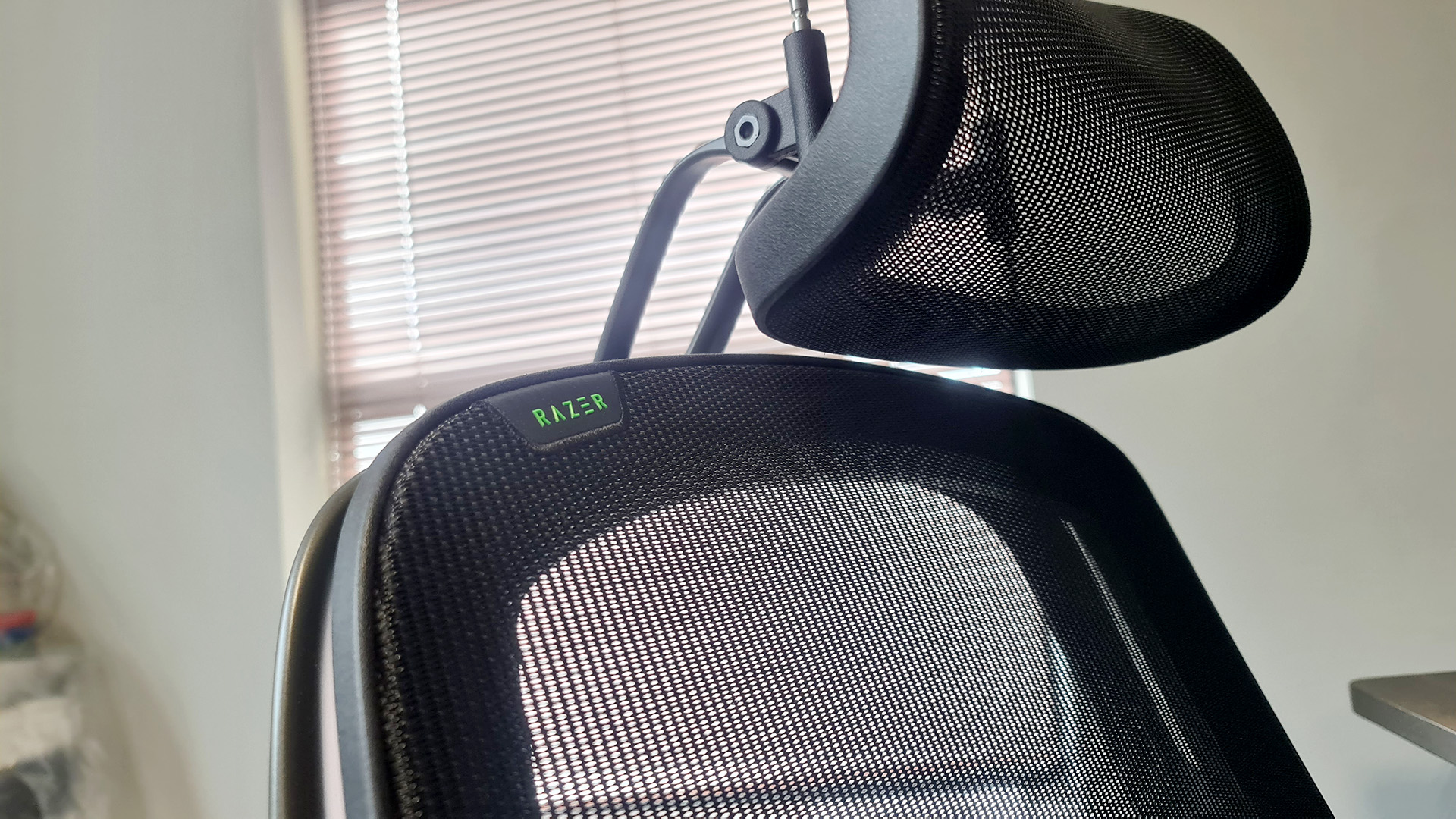
If you're familiar with the best office chairs for gaming then you already know that there's a premium for a good office chair, and that's the slice of the market that Razer is aiming at with the Fujin Pro. It's competing with the likes of the NeueChair, which shares a similar mesh construction and frame; the Herman Miller Embody, my own chair at home; and the Herman Miller Vantum, which I've got here next to me in the office.
Two are more expensive than the Razer: the NeueChair costs $1,169 and the Embody costs $1,995. The Vantum is $895.
Wait, what? When I looked at the Embody for review a few years ago, it was $1,445. That later increased to $1,595. Now, sheesh. That's a serious case of inflation.
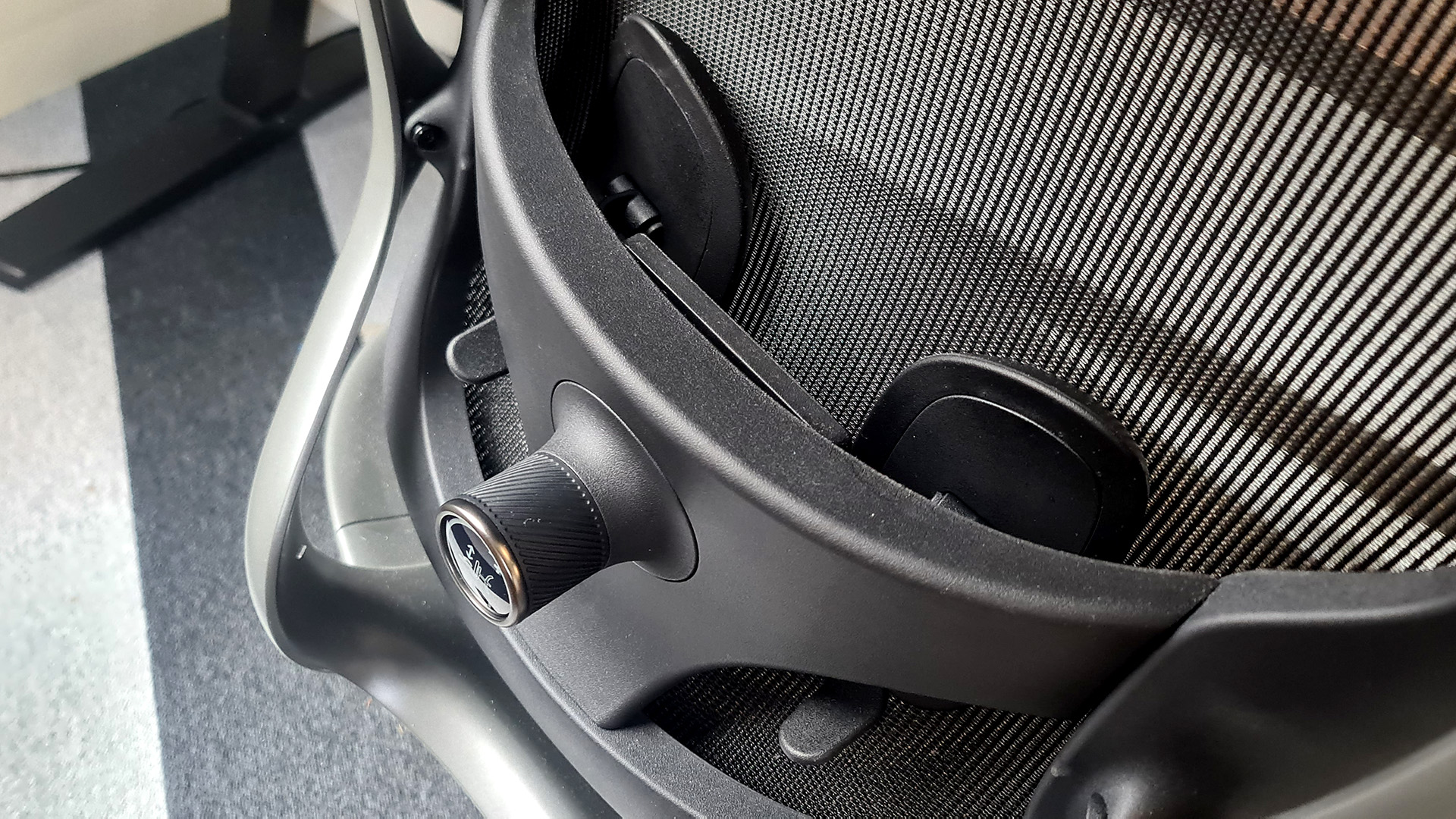
I can speak to my own experience with the Embody versus the Razer Fujin Pro—I use one at home and one while I'm in the office. The Fujin Pro is much more a traditional office chair in its design, taking plenty of notes from the NeueChair. It pushes you to sit more upright and slouch less, which certainly has its positives, though is less amenable to the WFH and gaming lifestyle.
The Embody, on the other hand, is much more of an inbetween of a prim and proper office chair and a more relaxed one. It delivers excellent comfort but there's more flex to the materials, more padding, more cushioning—it's an all round comfier unit.
Though there's no escaping the Embody's humongous price tag. The Vantum is more the Fujin Pro's competitor. I've tried this out in the office for comparison. While I don't love some parts of that chair's construction (the sliding armrests drive me wild), it does show that a simple, straightforward mesh chair that's good for your posture doesn't have to demand a four-digit price tag.
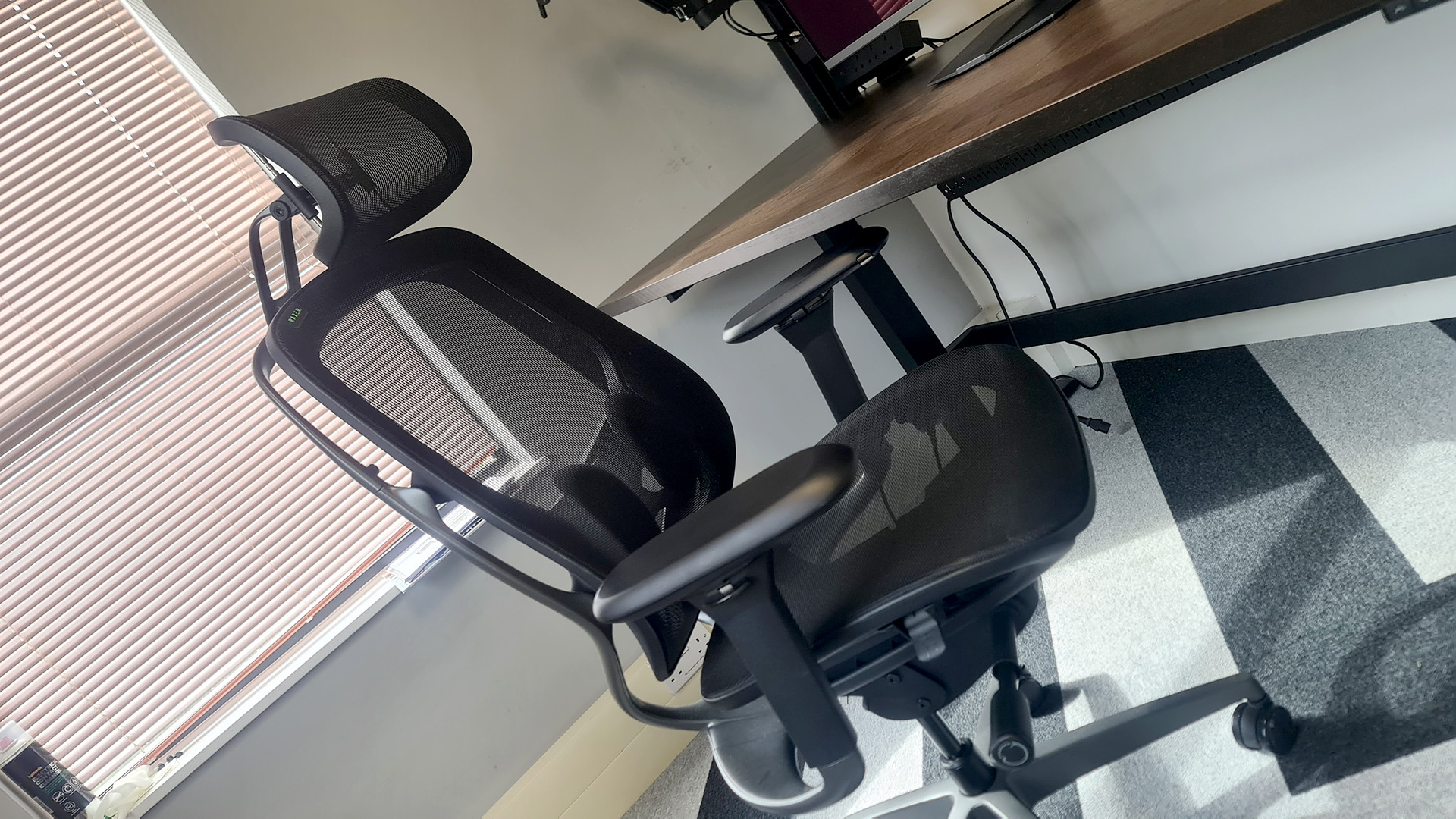
✅ You won't be caught dead in a gaming chair: I get it, gaming chairs aren't for everyone. If you prefer something more sensible for your Google Meet or Zoom call, the Fujin Pro is a solid pick.
✅ You want simple ergonomics: The combination of a firm mesh material and adjustable backrest make for a straightforward chair to set-up and get right for you.
❌ You worry about the warranty: The Fujin Pro's five-year warranty is better than many gaming chairs, but it's less than half the length of what Herman Miller or NeueChair offer.
❌ You want a chair primarily for gaming: If you mostly want a chair for your evening session in Hunt: Showdown, Valorant, or whatever else, you'd do better with the Secretlab Titan Evo. You'd save yourself a lot of cash and still secure an absurdly well-built gaming chair.
The Embody and Vantum have the upper hand on Razer when it comes to warranty periods, too. Herman Miller offers a 12-year warranty. Razer just five. With two-year warranties quite common among gaming chair manufacturers, all lengthier options are welcomed. I've used Herman Miller's warranty to call in a spare part (a broken armrest lever) and I received the replacement part, no questions asked, within a matter of days. That's a pretty great experience.
The other chair to come with a 12-year warranty is the NeueChair, which stands as our best office chair for gaming.
The Fujin Pro ends up amongst a competitive pack of very highly rated office chairs. It's better on price than most, and I most definitely prefer it to the Vantum, though the lack of a lengthy warranty to match is its achilles' heel. It looks great, and it promotes good posture for a long day at a desk, but it's not quite able to pull me away from the tried and tested options. If it were a couple hundred bucks cheaper? I'd do it. Same if the warranty was doubled.
I'm in no rush to swap out the Fujin Pro in the office, either. Previously I was using the Secretlab Titan Evo, but I'm happy to give that gaming throne up for something more upright and active during the work day. If I were purely picking a chair for gaming comfort, however, I'd like something I could sink into a little easier, i.e. the Secretlab.
In every way an office chair, first and foremost, the Razer Fujin Pro gives the tried and tested premium office chairs a run for their money. However, a slimmer warranty than some keeps it from beating our favourite office chairs today.

Jacob earned his first byline writing for his own tech blog. From there, he graduated to professionally breaking things as hardware writer at PCGamesN, and would go on to run the team as hardware editor. He joined PC Gamer's top staff as senior hardware editor before becoming managing editor of the hardware team, and you'll now find him reporting on the latest developments in the technology and gaming industries and testing the newest PC components.
